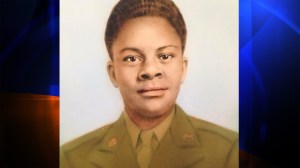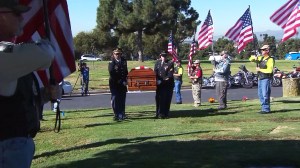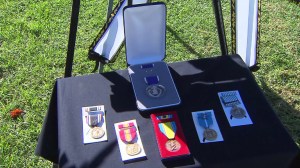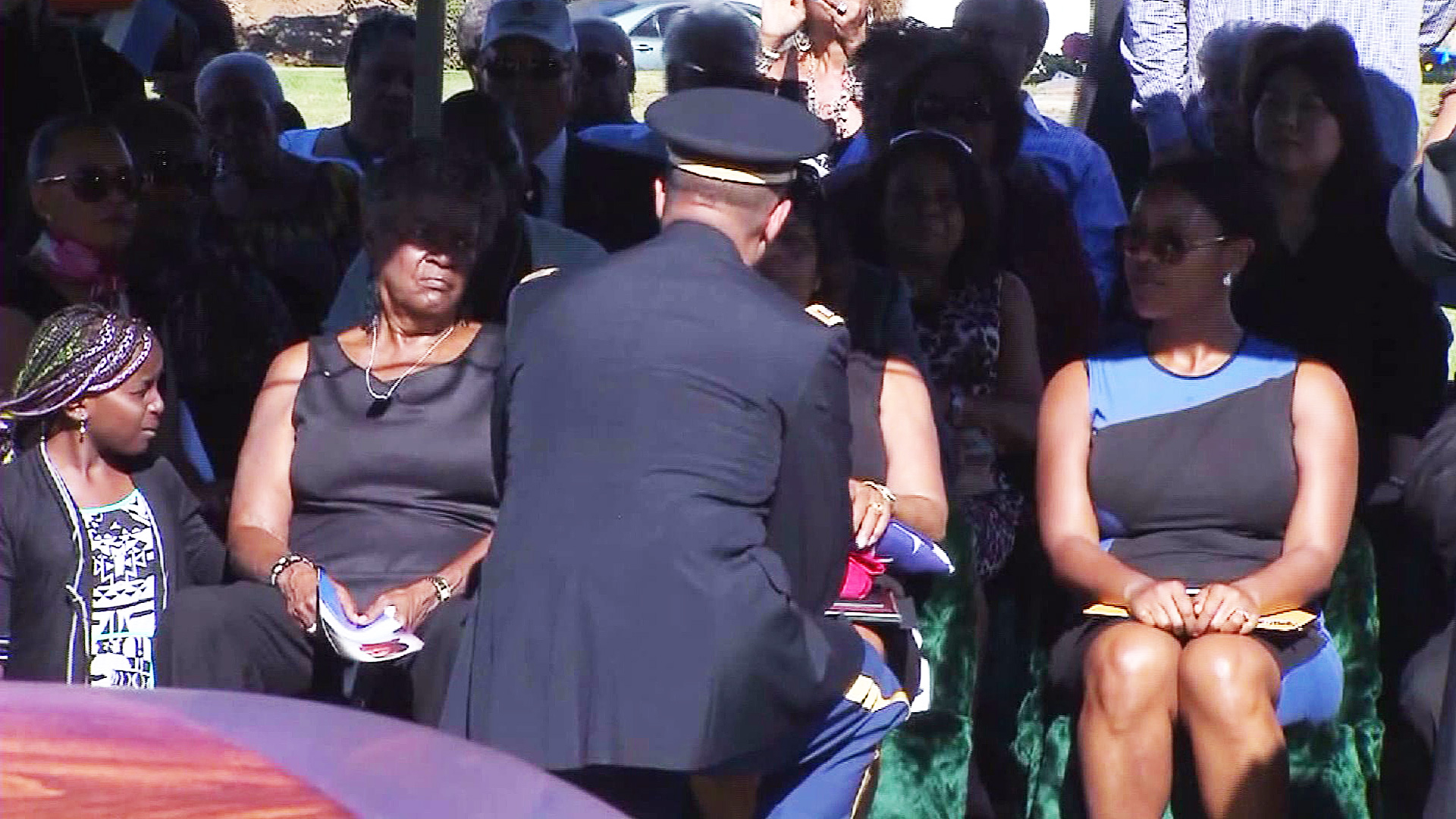More than 60 years after Sgt. Lee Henderson Manning died as a prisoner in the Korean War, his remains were returned to California so he could be laid to rest near his mother’s grave in Inglewood Friday.

A memorial service, along with a formal military procession that included a 21-gun salute, was held at the Inglewood Park Mortuary (map).
“It really warms my heart and I know I can keep this in my memory bank forever,” Carrie Elam, Manning’s sister said of the service.
In 1950, Manning was trained as a medic after he enlisted in the army at the age of 20, a news release detailing his life stated.
Manning was captured in December of the same year after returning to aid members of the 9th Infantry Regiment and died about six months later from the effects of poor nutrition, frigid temperatures and untreated illness.
Manning was buried in a mass grave, Elam said.

“When Henderson went missing decades ago, officials visited our home to inform my mother,” Manning’s sister Helena Parker stated in a news release. “Her hair turned white with sorrow as she struggled day after day to accept that a proper goodbye may never come.”
This summer, the U.S. government notified family members that the soldier’s remains had been identified through DNA analysis, and would be brought home.
“’Peace’ only scratches the surface in describing our family’s reaction to this overwhelming news,” said Elam. “My brother was a brave young man who never got the chance to live a full life, yet had a tremendous impact in the lives of those with whom he fought.”

Over the years, Manning was awarded the Purple Heart, United Nations Service Medal, U.S. Prisoner of War Medal, The Combat Medical Badge, National Defense Service Medal, Korean Service Medal, and the Republic of Korean Presidential Unit Citation.
Elam said this day was about more than just Manning’s legacy, but how continued hope and prayer has now healed a once heartbroken family.
“Who would have ever thought that they’d find my brother after 60 years? So, if you have faith, it can happen,” Elam said.
















